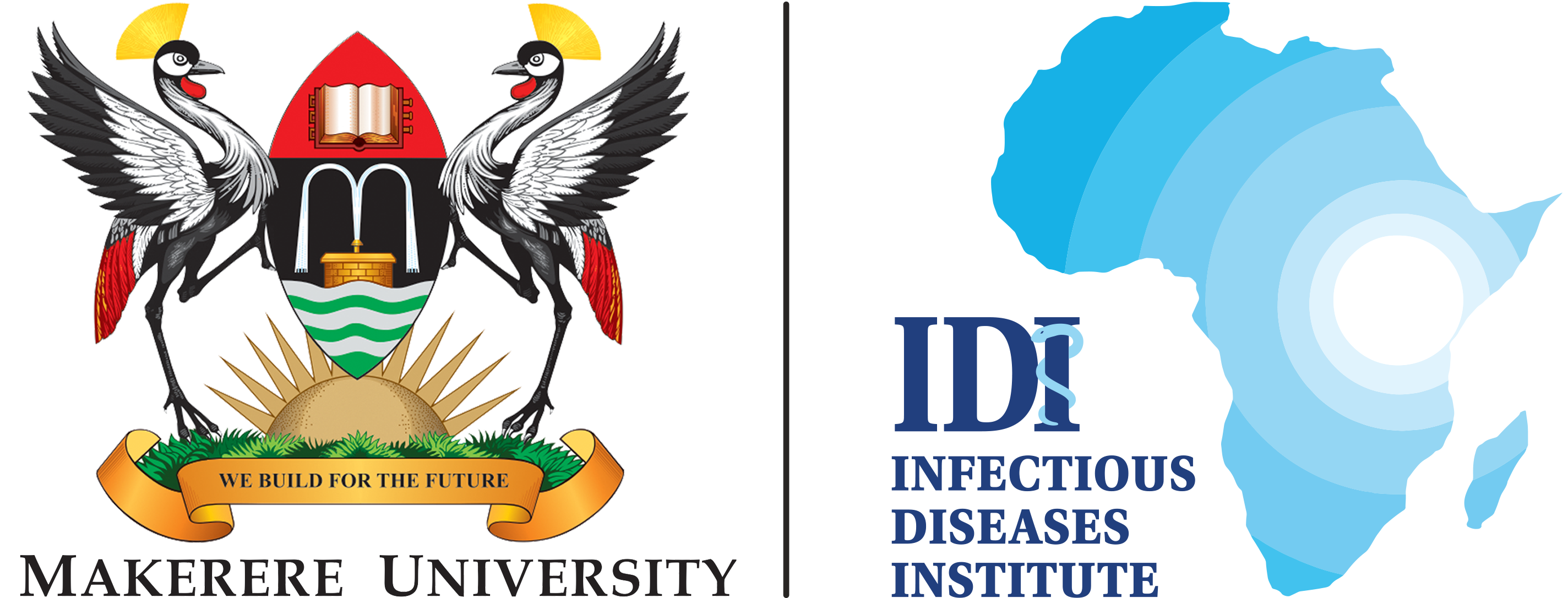- Associated Links
-
-
Our united network of partners and institutions share a vision for excellence, innovation, and impact. Together, we harness our combined strengths to create meaningful change.
-
-
-
- Careers
-
-
Our people are our greatest asset. We foster a thriving environment where everyone can flourish and make a difference. Join us in driving innovation and positive change through fulfilling career opportunities.
-
-
IDI’s Global Health Security Impact and Reach

Our vision is a world that is safer and more secure from global health threats posed by infectious diseases—one where we can prevent or mitigate the impact of naturally occurring outbreaks and accidental or intentional releases of dangerous pathogens, rapidly detect and transparently report outbreaks when they occur, and employ an interconnected global network that can respond effectively to limit the spread of infectious diseases outbreaks in humans and animals, mitigate human suffering and the loss of human life, and reduce economic impact.
Addressing these complex challenges requires close coordination and collaboration with a wide array of stakeholders from around the world to align efforts and find solutions. For years, IDI has worked with local health care providers, community leaders, patient advocates, and government officials to strengthen health systems by developing polices, standards, guidelines, and the capacity of facility and community health workers to detect, prevent, and respond to infectious disease. Our Global Health Security programme is designed to advance the Global Health Security Agenda (GHSA) of accelerating progress toward a world safe and secure from infectious disease threats. IDI’s contribution to GHSA include:
- Legal Instruments:
- IDI with support from Resolve to Save Lives provided technical and legal support to the Ugandan government through the Ministry of Health in the fast-tracking the amendment of the Public Health Act. This was assented to by the President in 2023.
- Financing:
- IDI supported monitoring of the implementation of the National Action Plan for Health Security (NAPHS) and development of annual costed operation plans by the government ministries, departments and agencies.
- IDI developed a Policy Brief on Rapid Investigation Funds for Disease Outbreaks (RIFO).
- International Health Regulations (IHR) 2005:
- Through funding from Resolve to Save Lives, IDI supported the completion and launch of the National Action Plan for Health Security [2019-2023] in collaboration with the Office of the Prime Minister, related government ministries, departments and agencies and other health security stakeholders.
- IDI provided technical support in the development and finalisation of the Framework for Multi-Hazard Preparedness and Response to Public Health Emergencies.
- Antimicrobial Resistance:
- IDI contributed to the review and finalization of the Antimicrobial Resistance (AMR) National Action Plan (AMR-NAP 2018-2023).
- IDI supported constitution and activation of the National AMR Sub-Committee (NAMRSC) and its 5 Technical Working Committees.
- IDI supported development, review and finalization of sector-specific AMR and AMUC surveillance normative documents including surveillance plans, protocols and SOPs.
- IDI renovated microbiology units at 5 surveillance sites to meet the standard biosafety biosecurity standards.
- IDI equipped 12 surveillance sites and reference laboratories with High-tech microbiology equipment to facilitate detection of AMR and Antimicrobial Susceptibility Testing (AST).
- IDI conducted 7 series of annual surveys and Point Prevalence Surveys at 12 regional referral hospital to generate evidence to inform Antimicrobial Stewardship interventions.
- IDI supported functionalisation of 9/9 Medicines and Therapeutic Committees (MTC) at 9 regional referral hospitals.
- IDI developed antibiograms for high-volume sites, including Jinja, Kabale and Mbarara regional referral hospitals.
- IDI supported antimicrobial use and consumption surveys in the animal health sector.
- Zoonotic Diseases:
- IDI continued to strengthen the integration of One Health Samples into the National Sample Transportation and Referral System to facilitate early detection of zoonotic threats. 1351 One Health related samples were transported from the region between October 2022 and September 2023.
- IDI supported response to 9 One Health events between October 2022 and September 2023 jointly with the veterinary and human health district offices. These included Animal Bites; Anthrax- human and animal events, Brucellosis, RVF, Trypanosomiasis- animal events. A One Health Community of Practice has been initiated.
- Food Safety:
- Through Resolve to Save Lives funding, IDI funded and provided technical support to conduct the 2021 Situational Analysis of the National Food Safety Systems of Uganda.
- Biosafety and Biosecurity:
- In collaboration with the Netherlands Biosecurity Office (RIVM), National Public Health Emergency Operation Centre (PHEOC) and UNCST, IDI supported the development of the National Pathogen Inventory Database and facility level pathogen inventory databases and SOPs.
- IDI facilitated and coordinated the development of the National Bio-risk Management Curriculum.
- IDI supported Bio-Risk Management Audits in select facilities in the supported regions and corrective actions through mentorships and supplies.
- Immunisation:
- As the country prepared to roll-out 2nd Year of life vaccination for measles vaccine in 2022, IDI, AFENET, CDC and the National Institute of Public Health supported a Rapid Community Assessment in 18 districts of the country. The assessment sought to understand Knowledge, Attitudes and perceptions of the introduction of the second dose of Measles –Rubella (MR2) among care givers & HCWs in Uganda. The results informed key strategies to improve MR2 uptake.
- IDI in conjunction with PEPFAR partners supported last mile delivery of COVID-19 vaccination.
- IDI supported the roll out of 3 rounds of the COVID-19 regional accelerated mass vaccination campaigns in 51 districts and cities. Additional efforts have supported the roll-out of Yellow Fever Vaccination, and support for the Integrated Child Health Days.
- Strengthening Laboratory System:
- IDI supported the development of the National Animal Sample Transportation Guidelines critical for quality laboratory service delivery for routine surveillance, disease outbreak investigation, control, and routine veterinary care.
- IDI supported the National Microbiology Reference Laboratory at UNHLS to attain the College of American Pathologists accreditation in 2021 and to develop National Laboratory Guidelines for Preparedness and Response to Public Health Emergencies.
- IDI supported the Clinical evaluation of the BioFire Global Fever Panel for the identification of malaria, leptospirosis, chikungunya, and dengue from whole blood.
- Surveillance:
- IDI with funding from the US CDC and Resolve To Save Lives provided technical support in the development of the National Integrated Disease Surveillance and Response (IDSR) Guidelines (third edition) and roll out in 7 health regions of the country (Lango, Karamoja, Sezibwa, KMPA, Rwenzori, Bunyoro, and West Nile).
- IDI in partnership with HISP Uganda supported the Ministry of Health in the roll-out of eIDSR, a digital early warning system in 119 of 146 (82%) districts and cities in the country, training over 2133 health care workers.
- IDI supported Surveillance of Acute Febrile Illness as part of efforts to build and strengthen sustainable surveillance, laboratory, and information systems to improve epidemic intelligence across multiple priority outbreak-prone febrile illnesses in Uganda.
- IDI supported in the digitisation of the case definition forms into eIDSR to guide verification.
- Through CDC funding, IDI through regional PHEOCs support analysis of data and generated weekly epidemiological bulletins.
- Human Resources:
- IDI has supported the deployment of Human personnel for surged response to public health emergencies including over 103 technical staff for the recent Sudan Virus Disease (SVD) Response; and COVID-19.
- Health Emergency Management:
- IDI provided technical support in the development and finalisation of the Framework for Multi-Hazard Preparedness and Response to Public Health Emergencies.
- IDI through CDC and Resolve to Save Lives in collaboration with the National PHEOC supported the establishment and functionalisation of 3 Sub-national PHEOCs: Mbale (1st Regional PHEOC in the country), Kampala Metropolitan Area, West Nile.
- IDI has supported the IMS structures of the various outbreak response efforts through providing technical support to the respective response pillars and sub-pillars.
- IDI provided technical support to the Ministry of Health in policy development for the deployment of MBP134 and RDV during the Ebola Sudan Virus Disease outbreak.
- Health Service Provision:
- IDI supported the deployment of 5 regional Emergency Medical Services (EMS) coordinators in support of the EMS regionalisation strategy to coordinate the safe evacuation of patients to designated destination facilities with a focus on highly infectious patients. The teams have also supported response efforts to COVID-19, Ebola Sudan Virus Disease and Cholera and trained EMT teams.
- IDI set up and operationalised the Namboole COVID-19 Treatment Unit, Entebbe and Mubende Regional Referral Hospital Ebola Treatment Units including pre-deployment training and continuous mentorship of Ebola Treatment Unit (ETU) personnel.
- IDI strengthened access to EVD therapeutics (Remdesivir and MBP134 through training RRHs hosting ETUs in storage, preparation, and administration.
- Infection Prevention and Control:
- IDI enhanced IPC practices within both Public and Private facilities supporting MoH in the adoption of the WHO Infection Prevention and Control (IPC) multi-model strategy. A mentorship strategy piloted in Kasese at the height of the EVD outbreak was adopted by the Ministry of Health and partners and rolled out to improve IPC practices across the country.
- In support of streamlining systems for surveillance of Health Care Associated infections, IDI through CDC funding has developed a Surgical Site Infections (SSI) protocol (under review by the Ministry of Health).
- IDI supported 6 districts to produce and distribute over 27,000 local Alcohol Based Sanitiser to 218 health facilities and 7 Points of Entry. These were supplemented by handwashing stations, materials and a WASHaLoT.
- Risk Communication and Community Engagement:
- IDI collaborated with the Ministry of Health to support district efforts to map and mobilize available community task forces members at the Village, Parish, and Sub- County levels, to strengthen community response structures. The project supported the activation of 7 sub counties/division task forces, 27 parish task forces and 234 village task forces.
- Point of Entry:
- IDI through Resolve to Save Lives Funding, supported the Ministry of Health to designate 8 Points of Entry (PoE) for development of capacities for prevention, control and response to Public Health of International Concern.
- IDI through the NAPHS Acceleration Team supported the development of the PoE Operation Manual for Border Health Services.
- With funding from CDC, IDI supported the development of the Public Health Emergency Plan for PoEs, these have since been adopted at 8/8 (100%) of the designated PoEs and 9 non-designated PoEs within the West Nile Region.
- IDI has supported Population Connectivity Across Borders (PopCAB) assessments in 25 districts during the 2018 EVD outbreak, COVID-19 Outbreak and Sudan Virus Disease Outbreak. These have been critical in prioritisation of high at-risk areas for support.
LISTINGS
For more information on IDI’s Health Systems Strengthening Programme contact,
Francis Kakooza Ag.Head of Global Health Security Email: ghs@idi.co.ug Telephone: +256 312 211 422

